Year 4 Number Worksheets
1000 More 1000 Less (A)
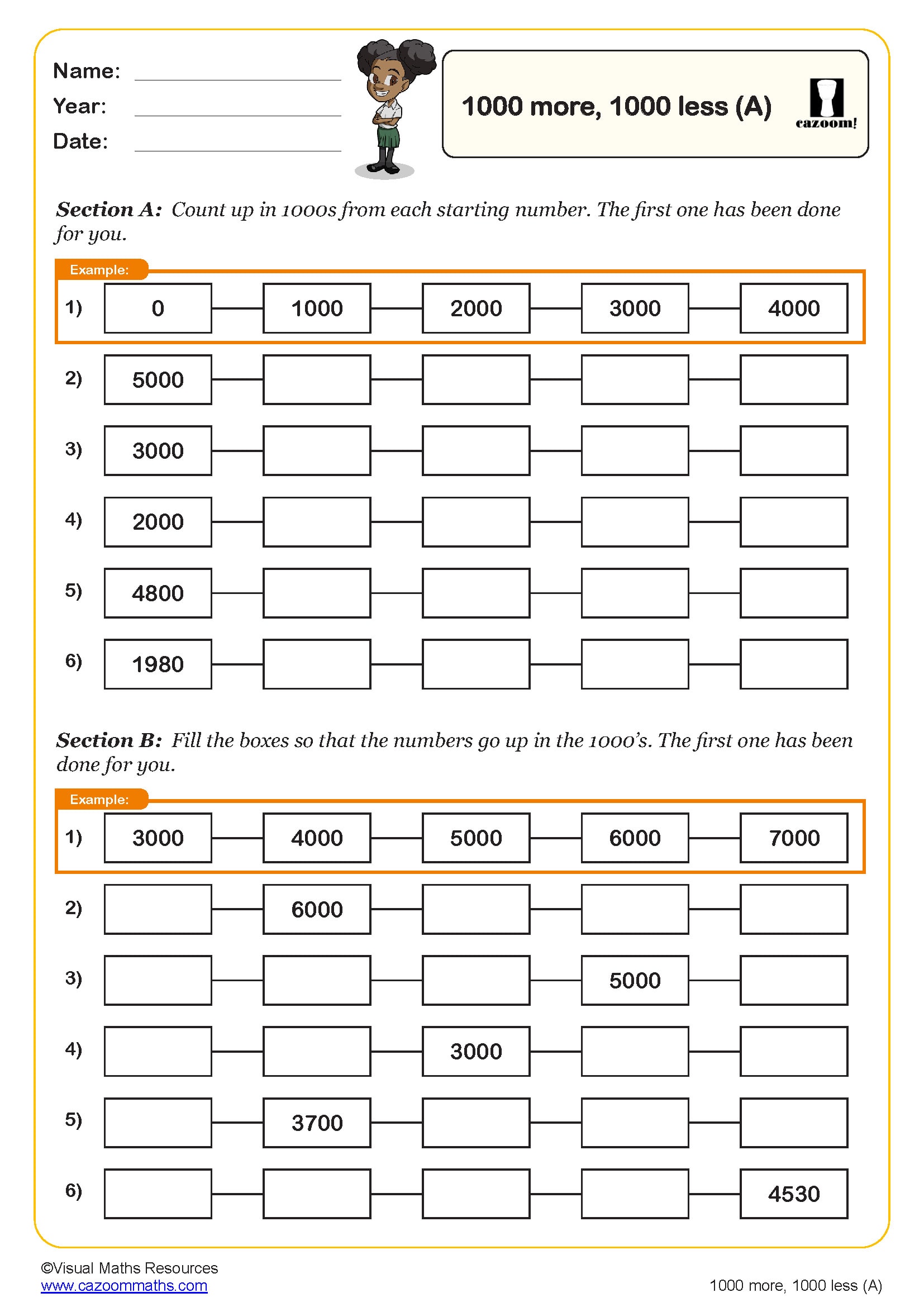
1000 More 1000 Less (B)
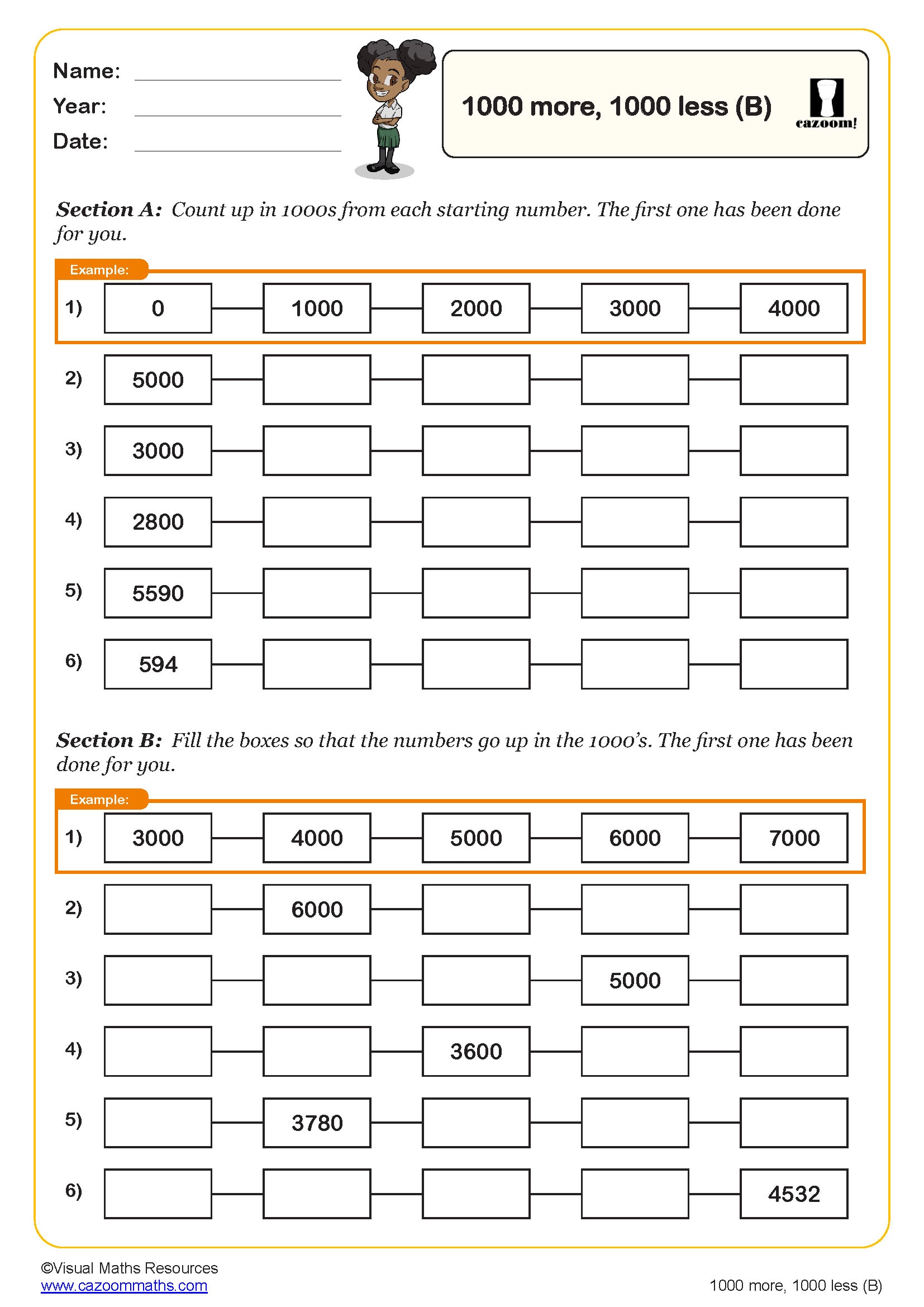
1000 More 1000 Less (C)
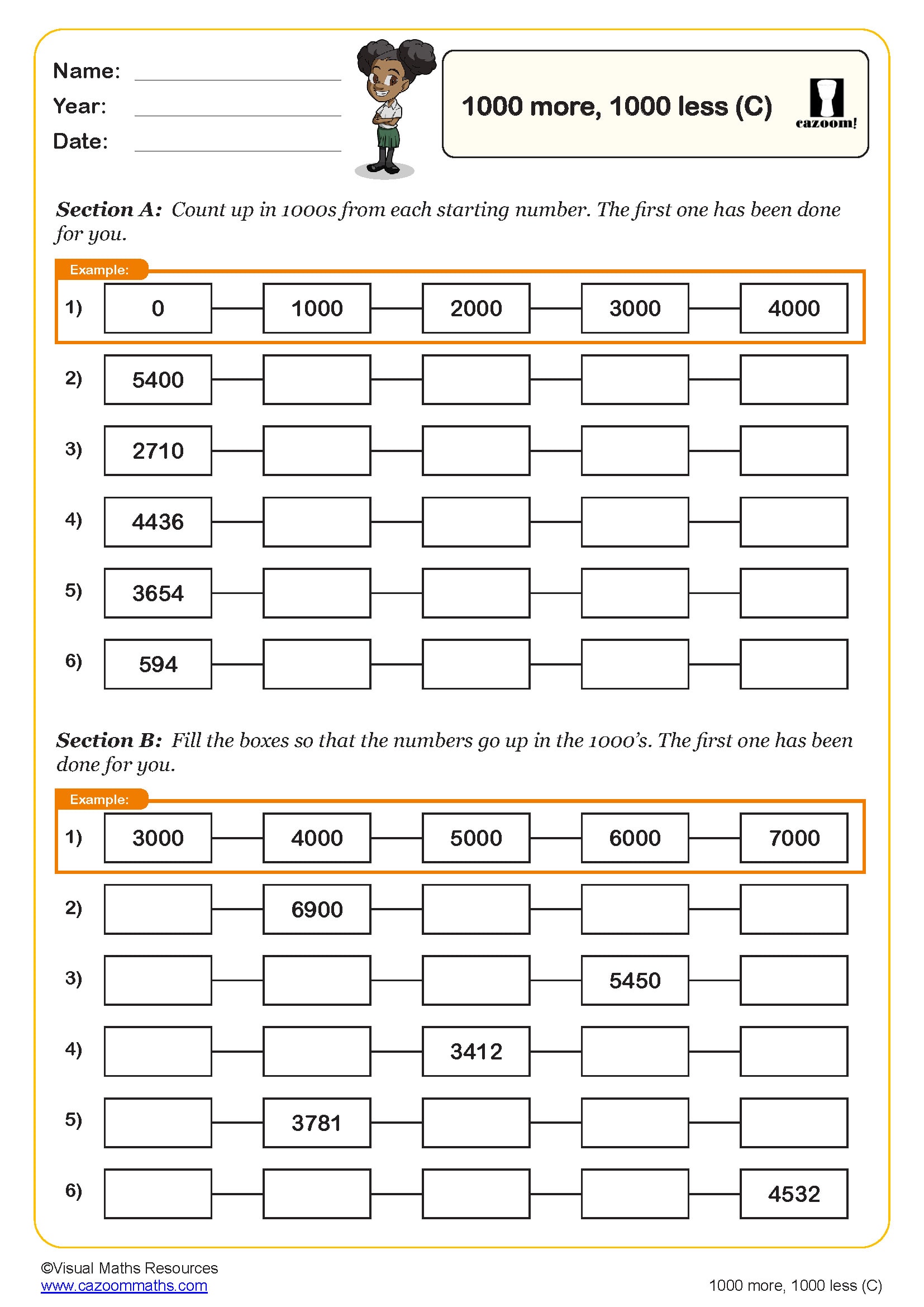
Compare and Order Numbers to 10,000
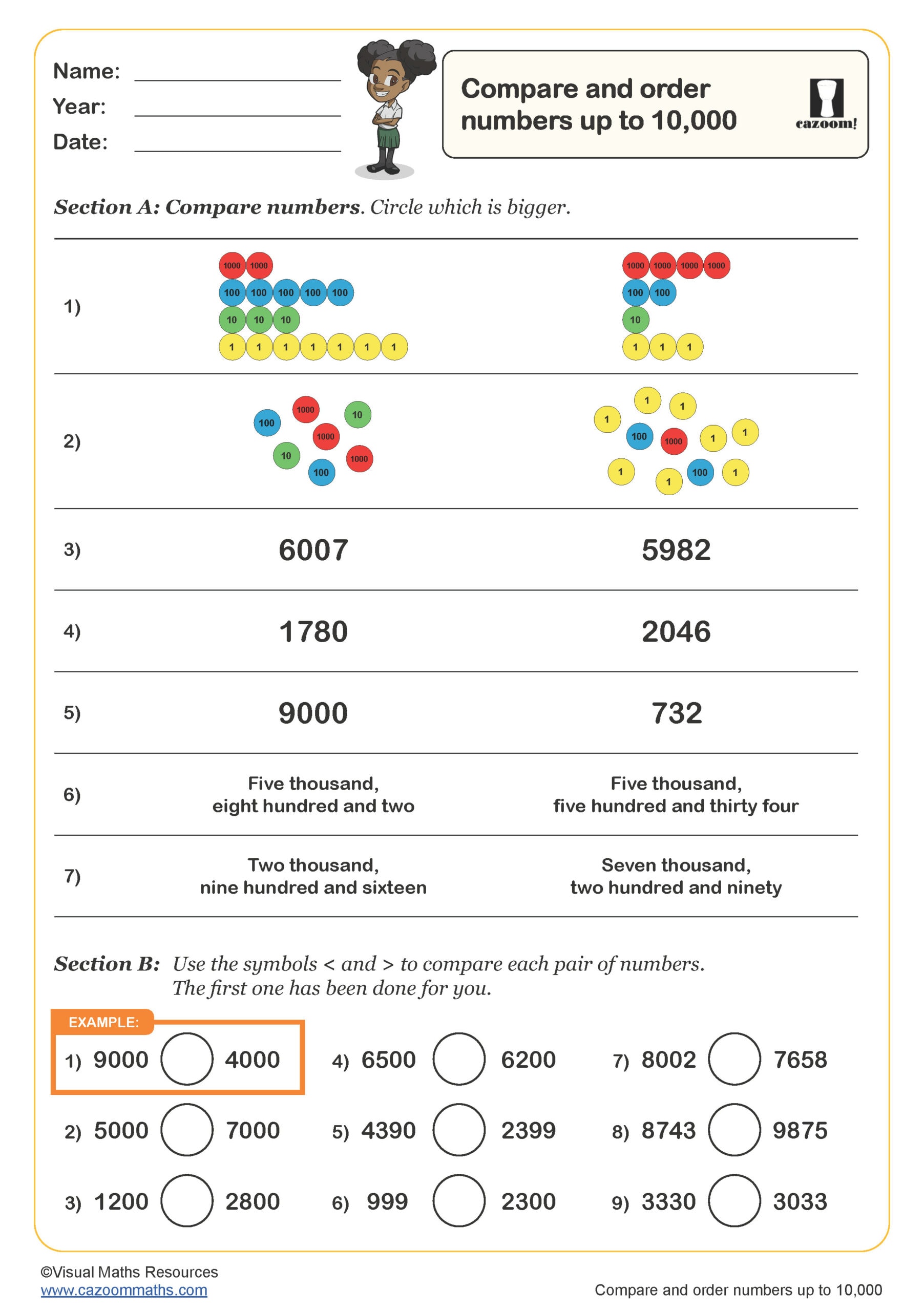
Compare and Order Positive and Negative Numbers
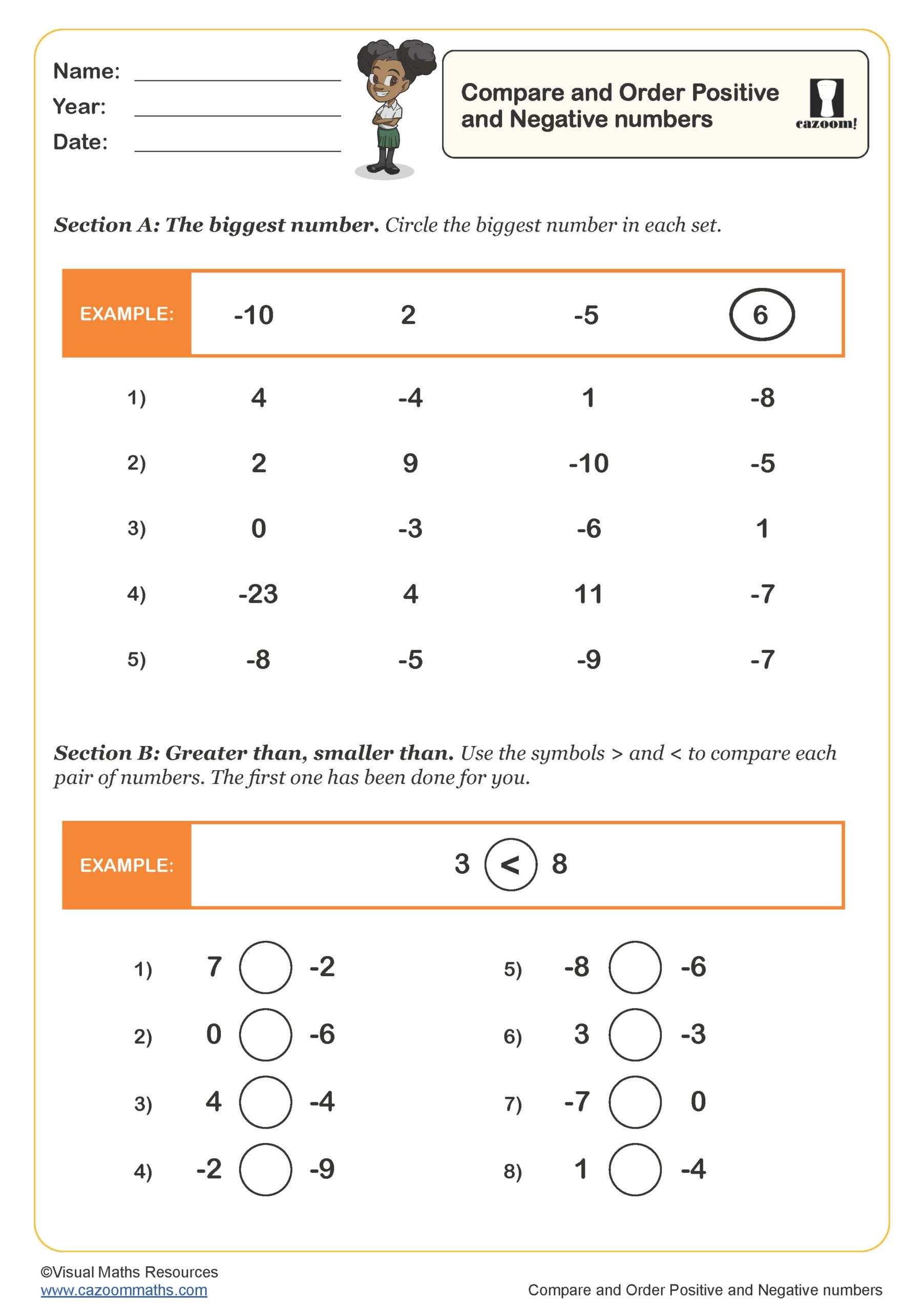
Decimal Place Value - Tenths and Hundredths
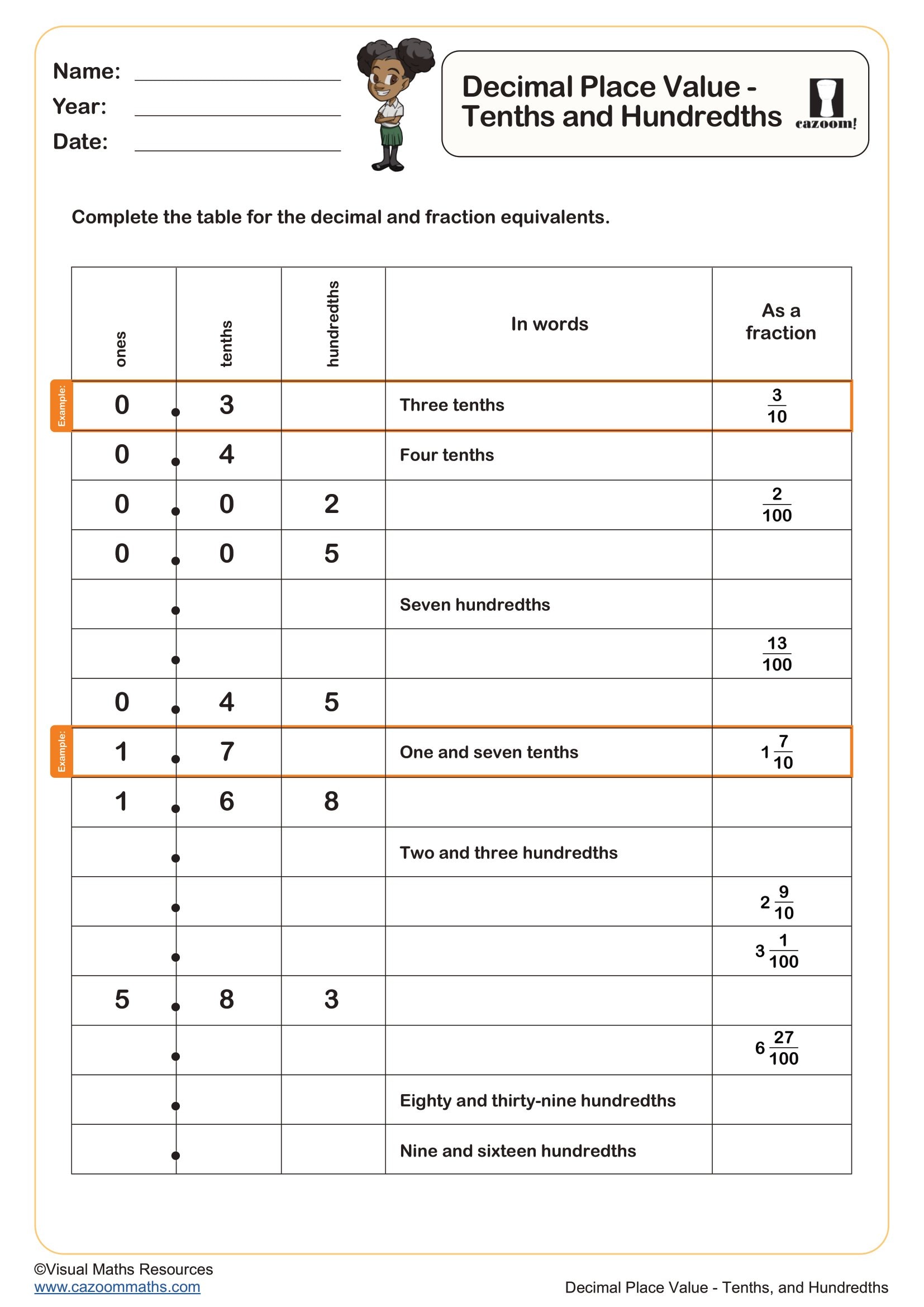
Divide 1 and 2 Digit Numbers by 10
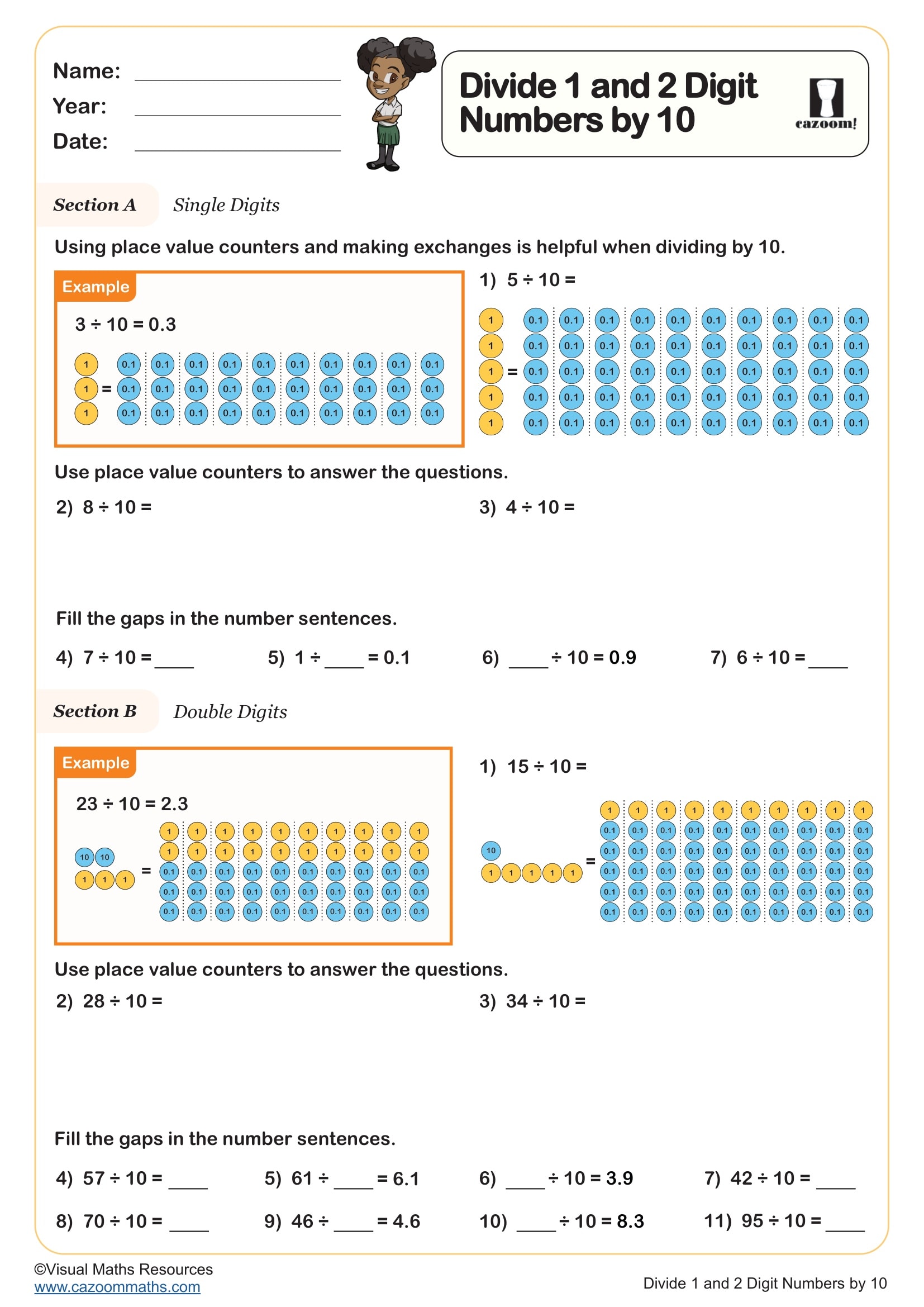
Divide 1 and 2 Digit Numbers by 100
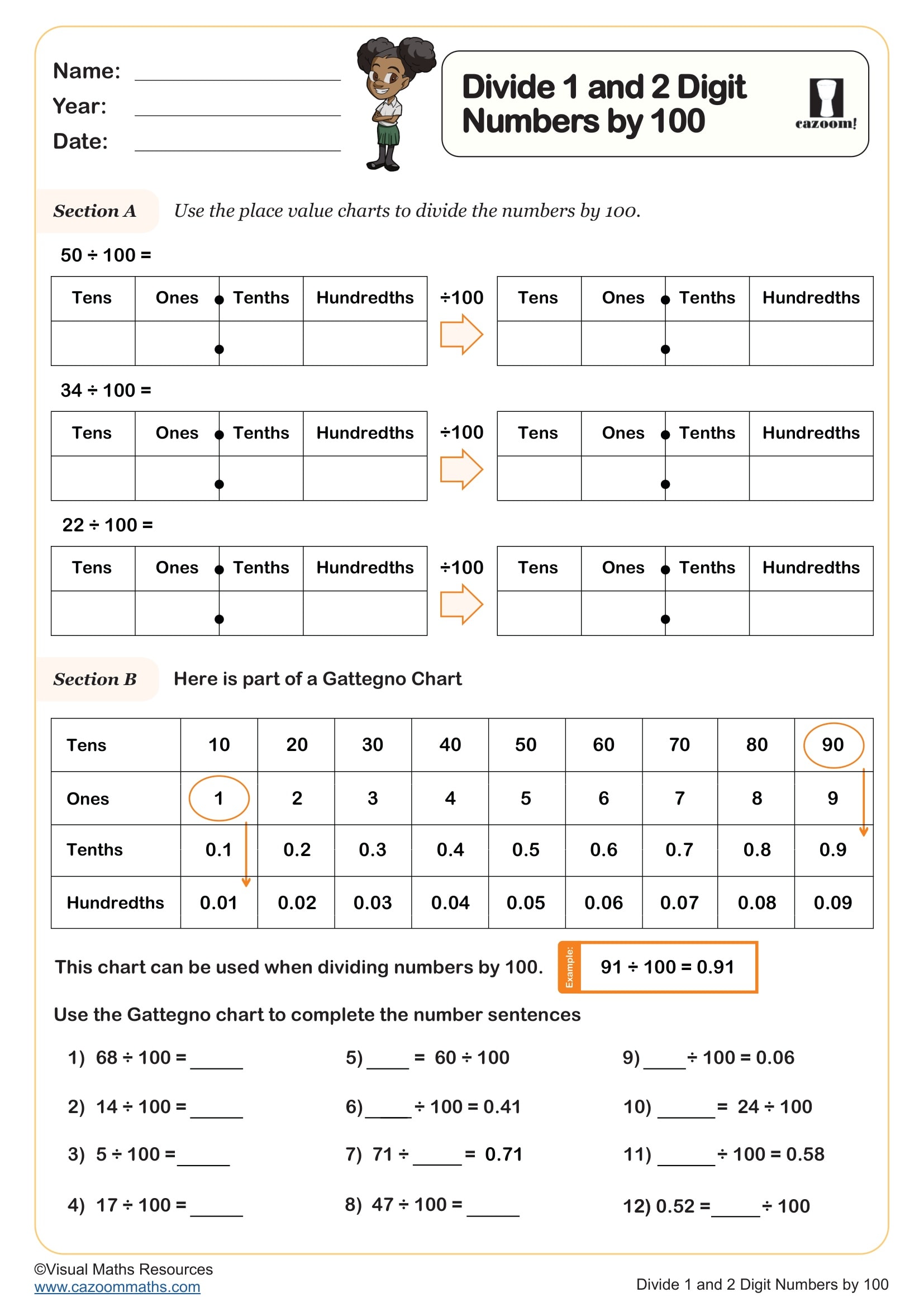
Estimating Shopping Bills
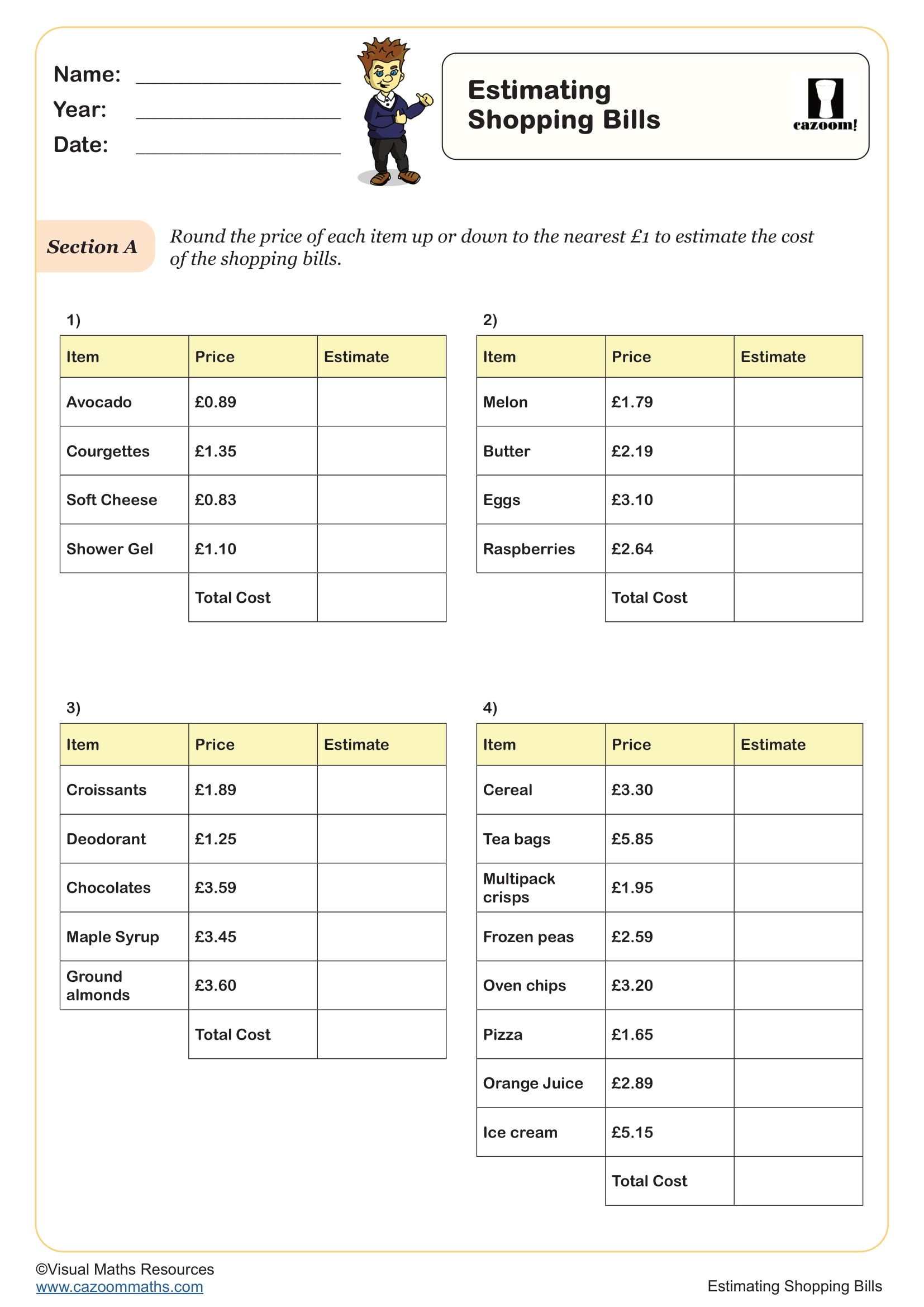
Negative Numbers
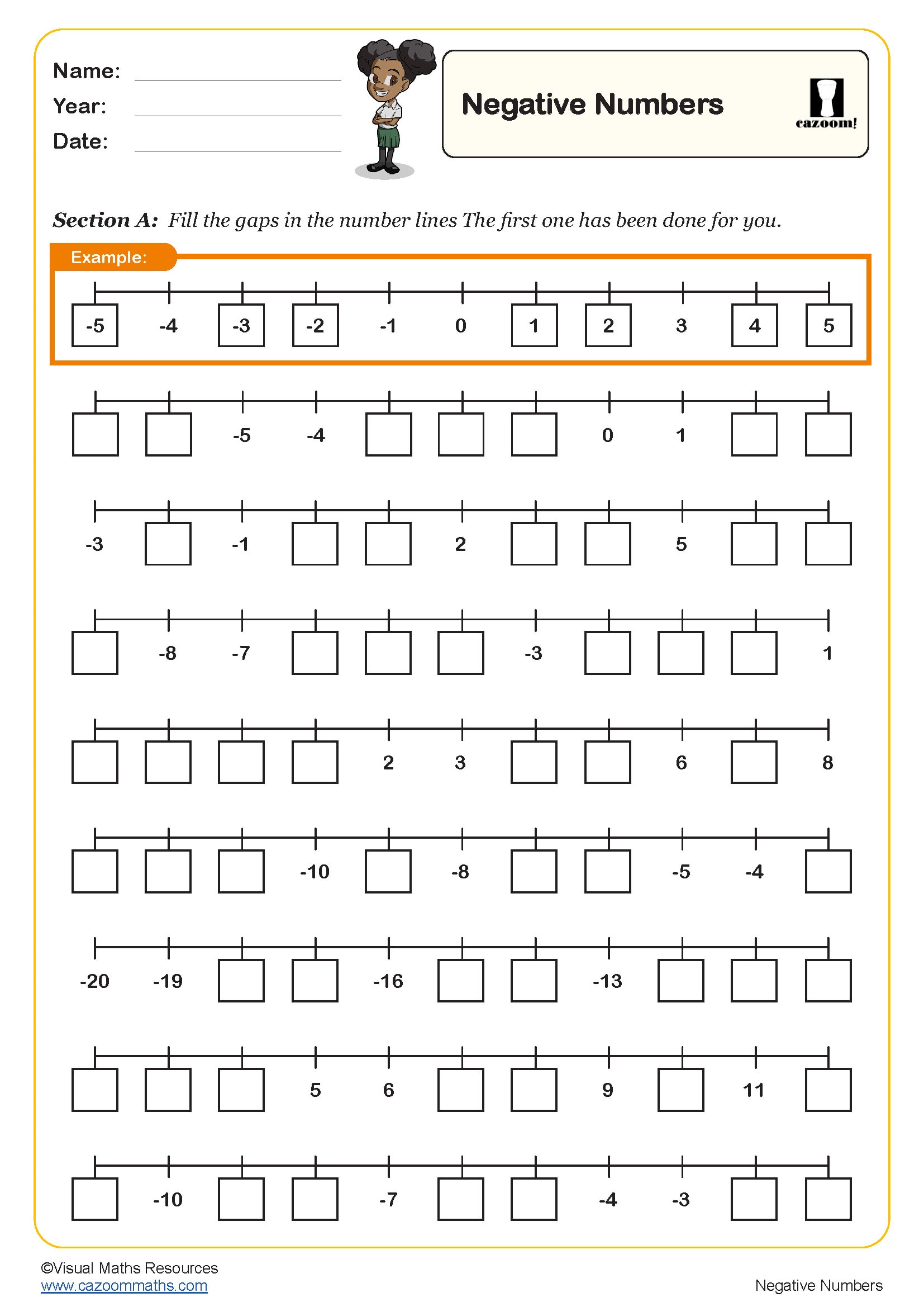
Place Value up to 10,000 (A)
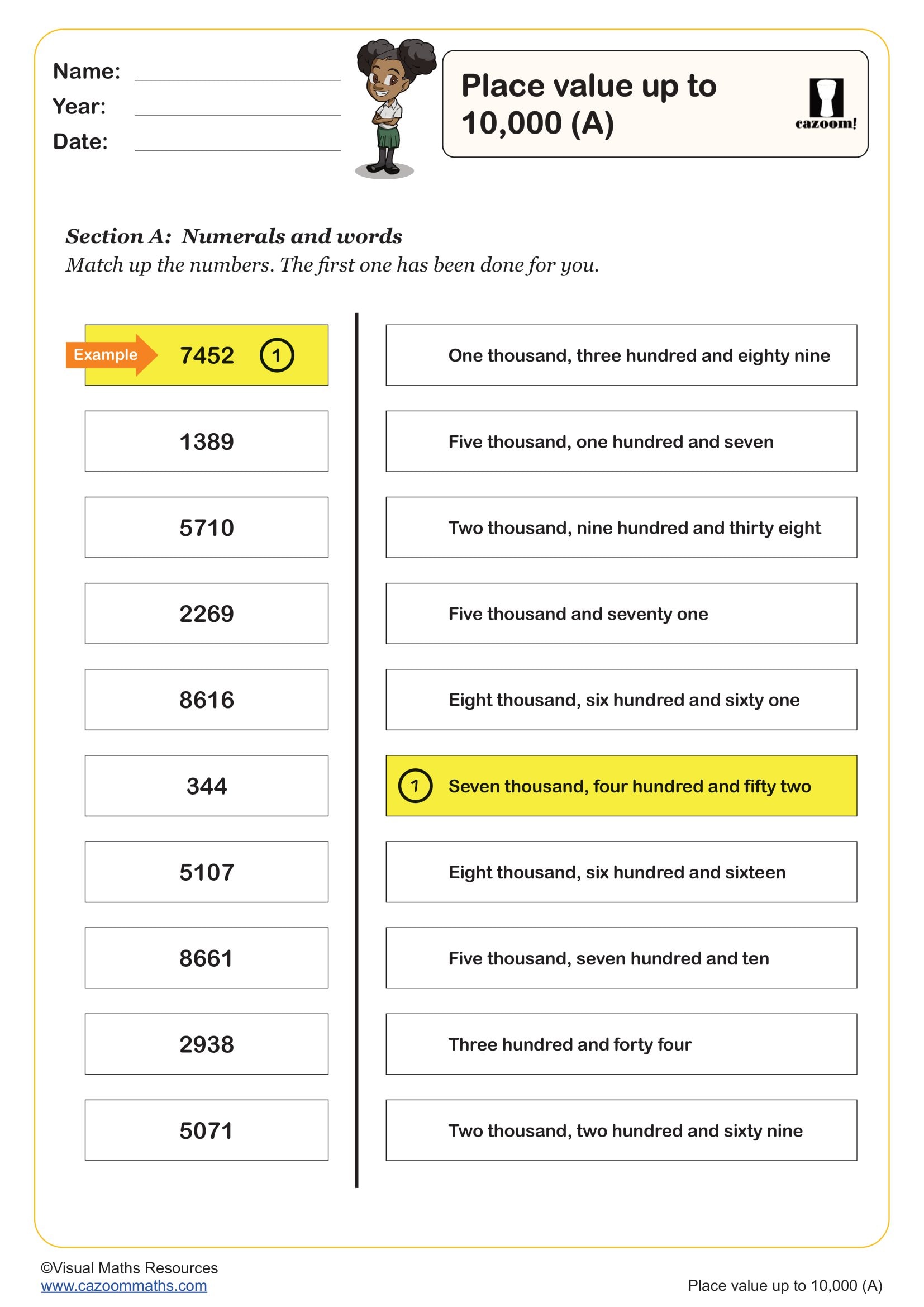
Place Value up to 10,000 (B)
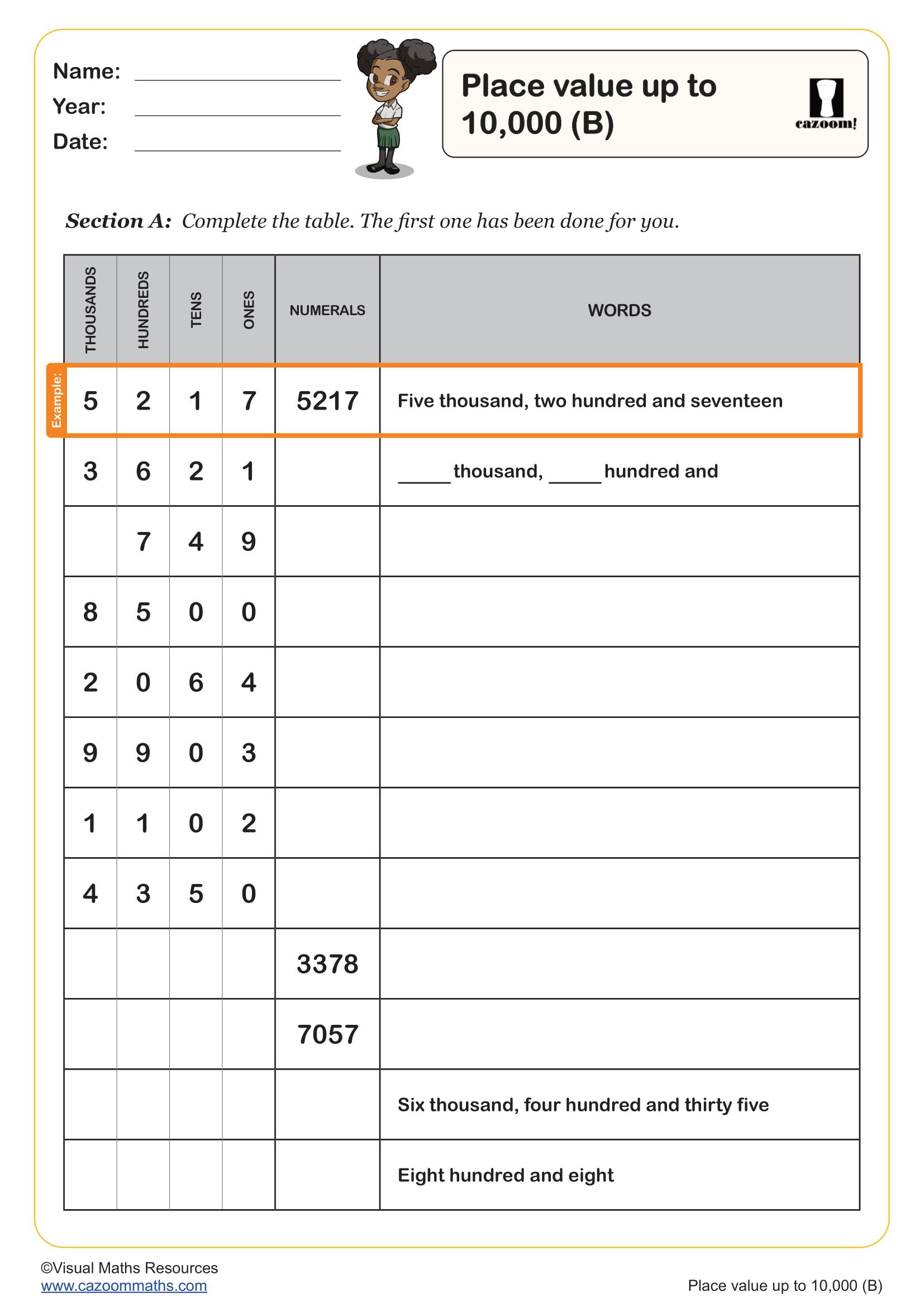
Place Value up to 10,000 (C)

Roman Numerals (B)
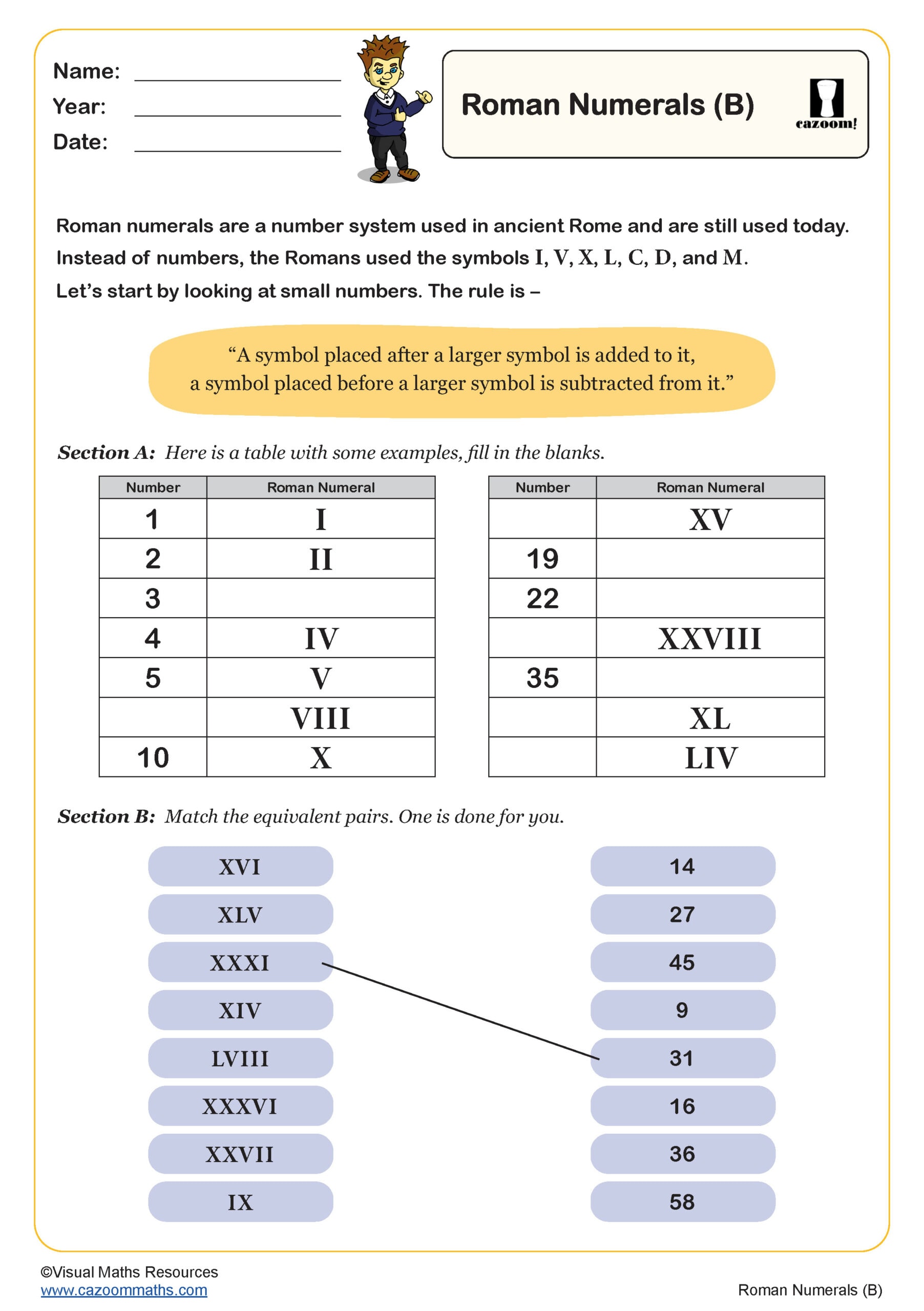
Roman Numerals (C)
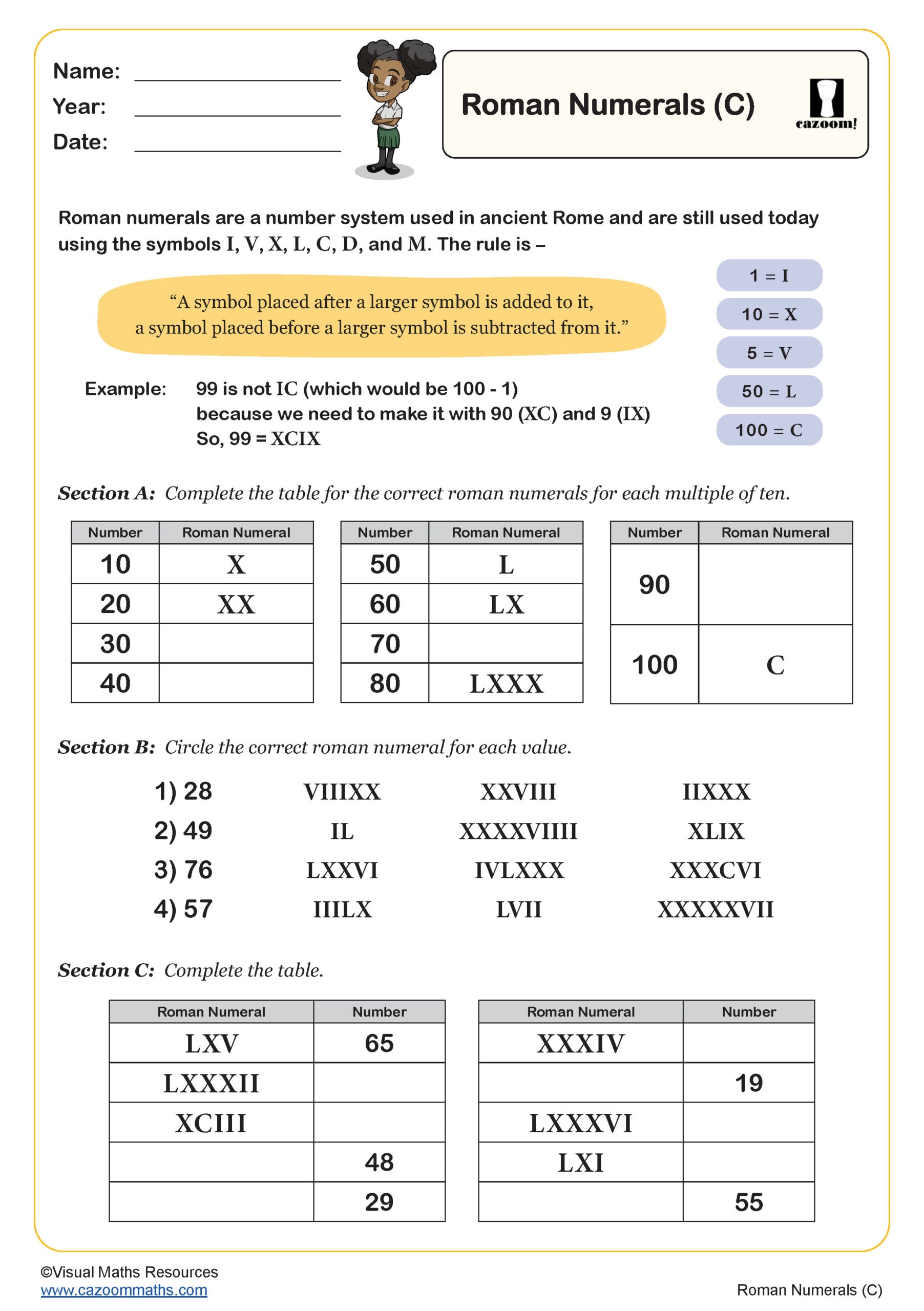
Round to the Nearest 10, 100 or 1,000
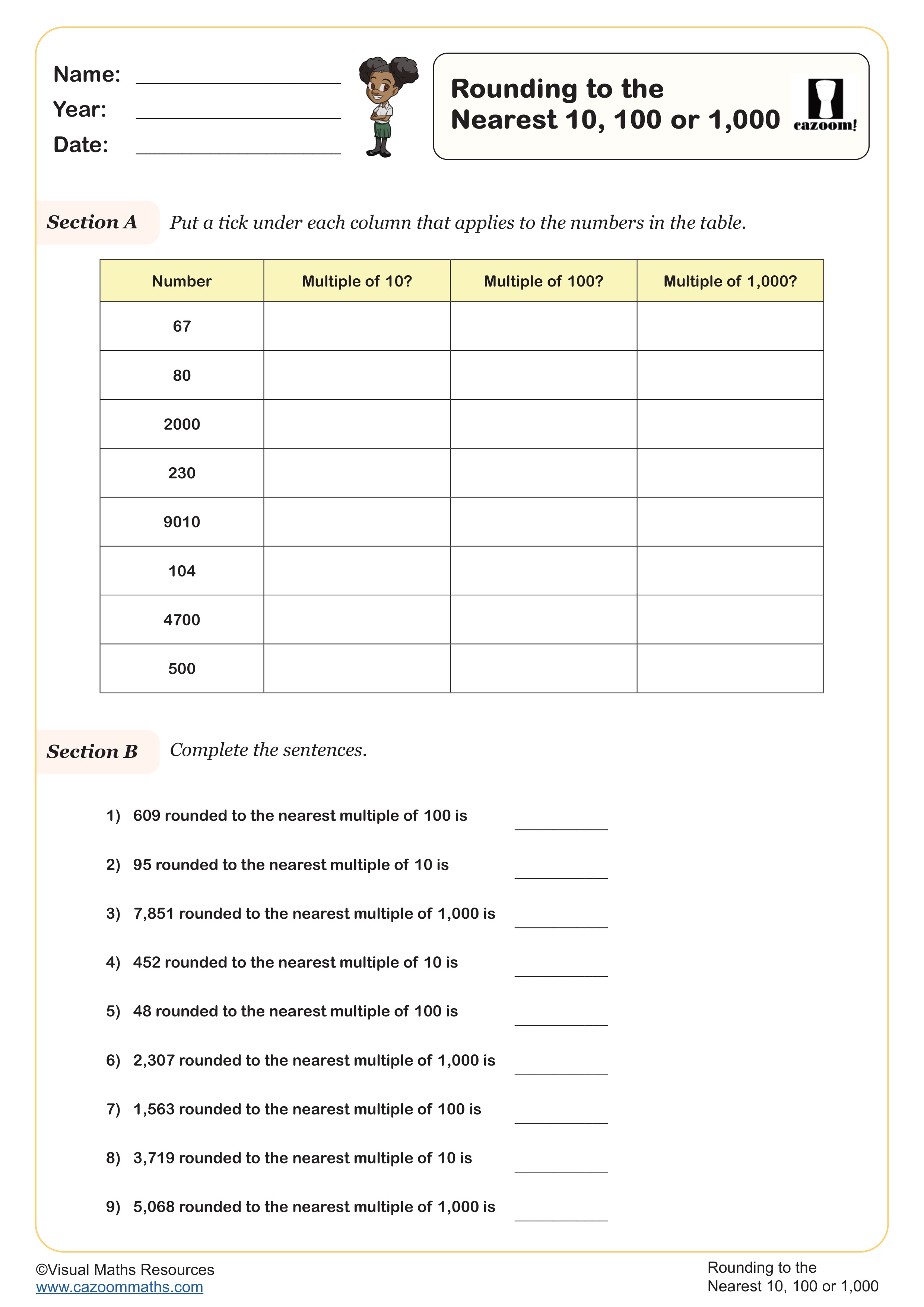
Rounding Charts
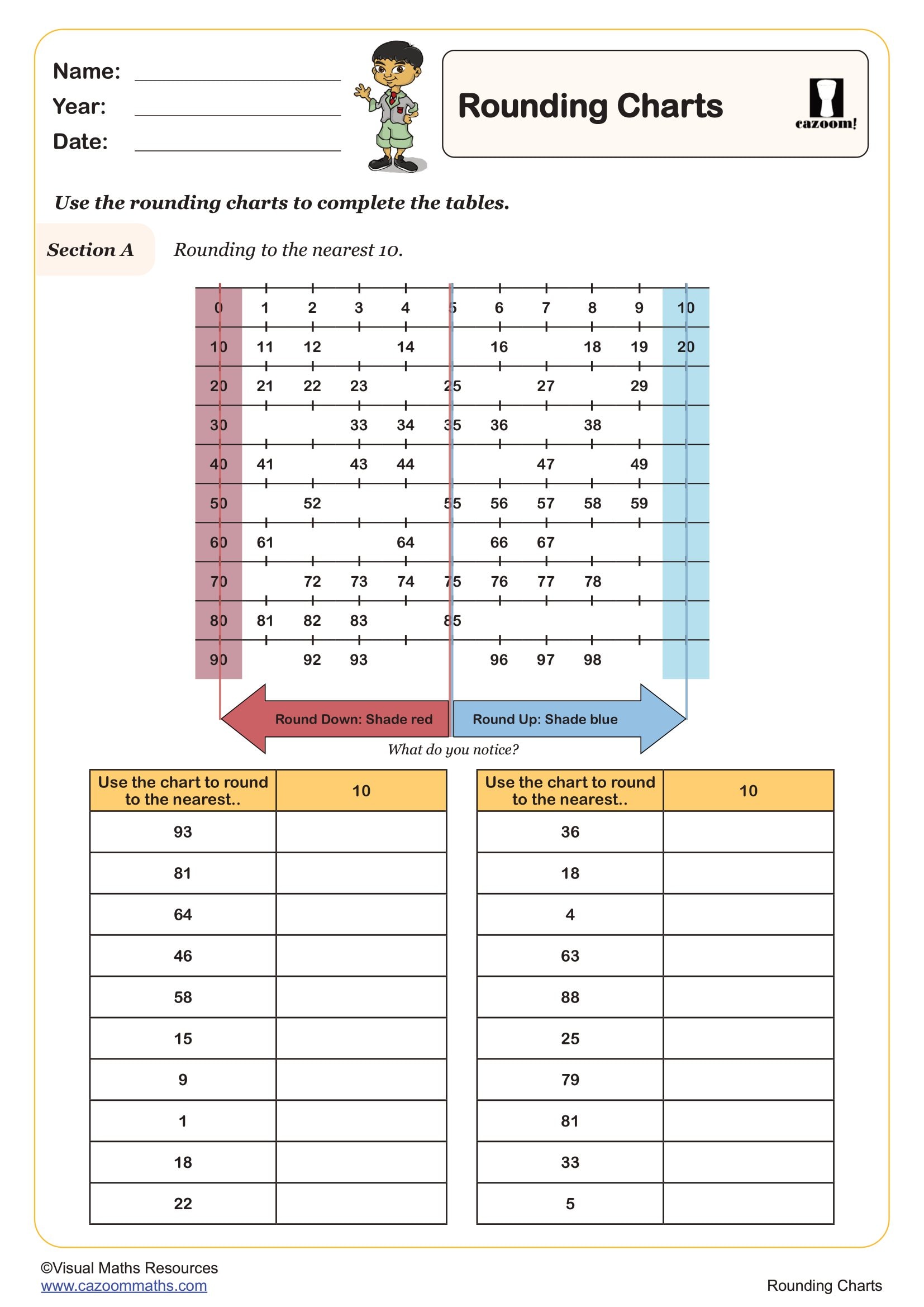
Rounding Numbers to the Nearest 10 Using Number Lines (A)
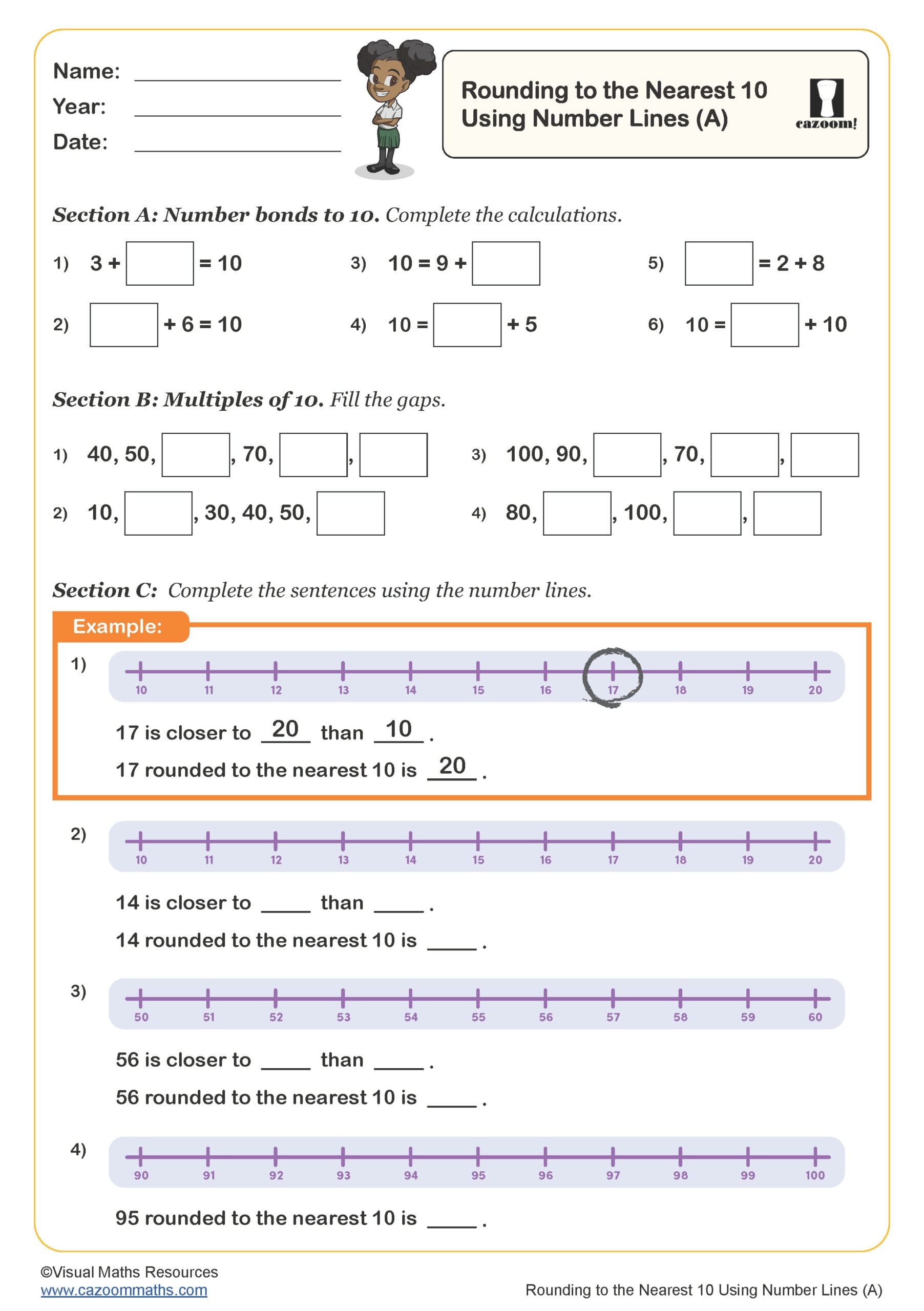
Rounding Numbers to the Nearest 10 Using Number Lines (B)
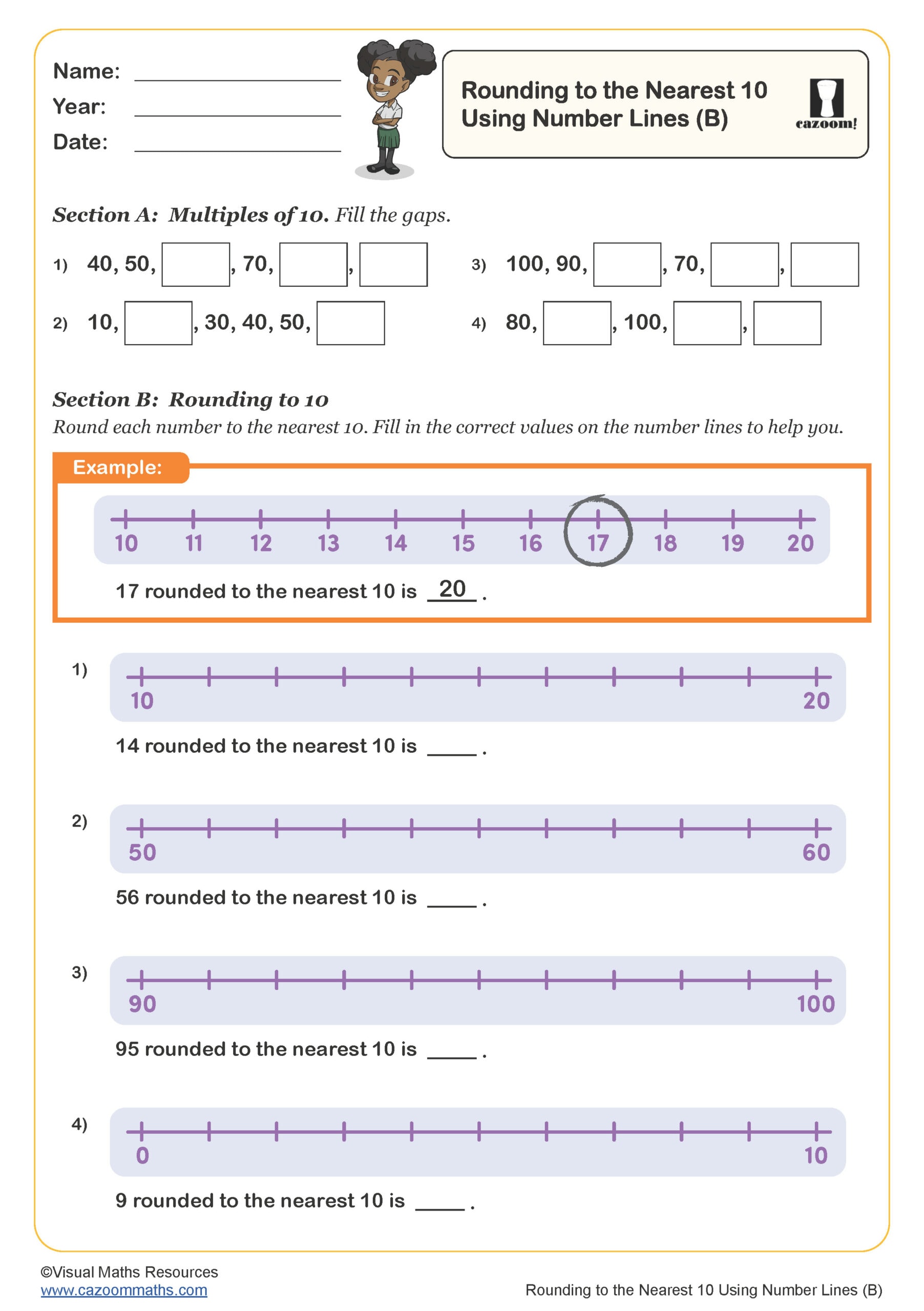
Rounding Numbers to the Nearest 10 Using Number Lines (C)
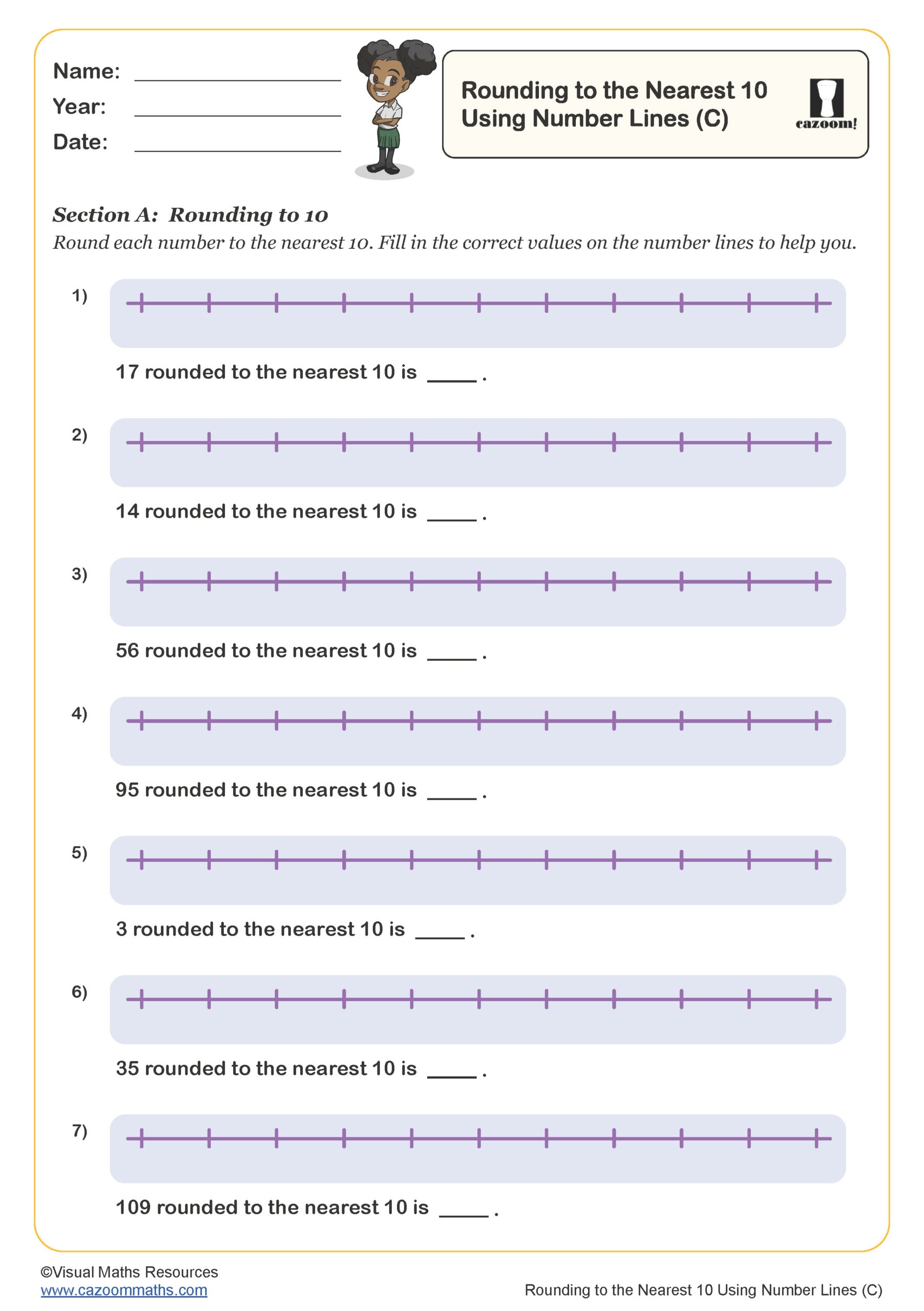
Rounding Numbers to the Nearest 100 Using Number Lines (A)
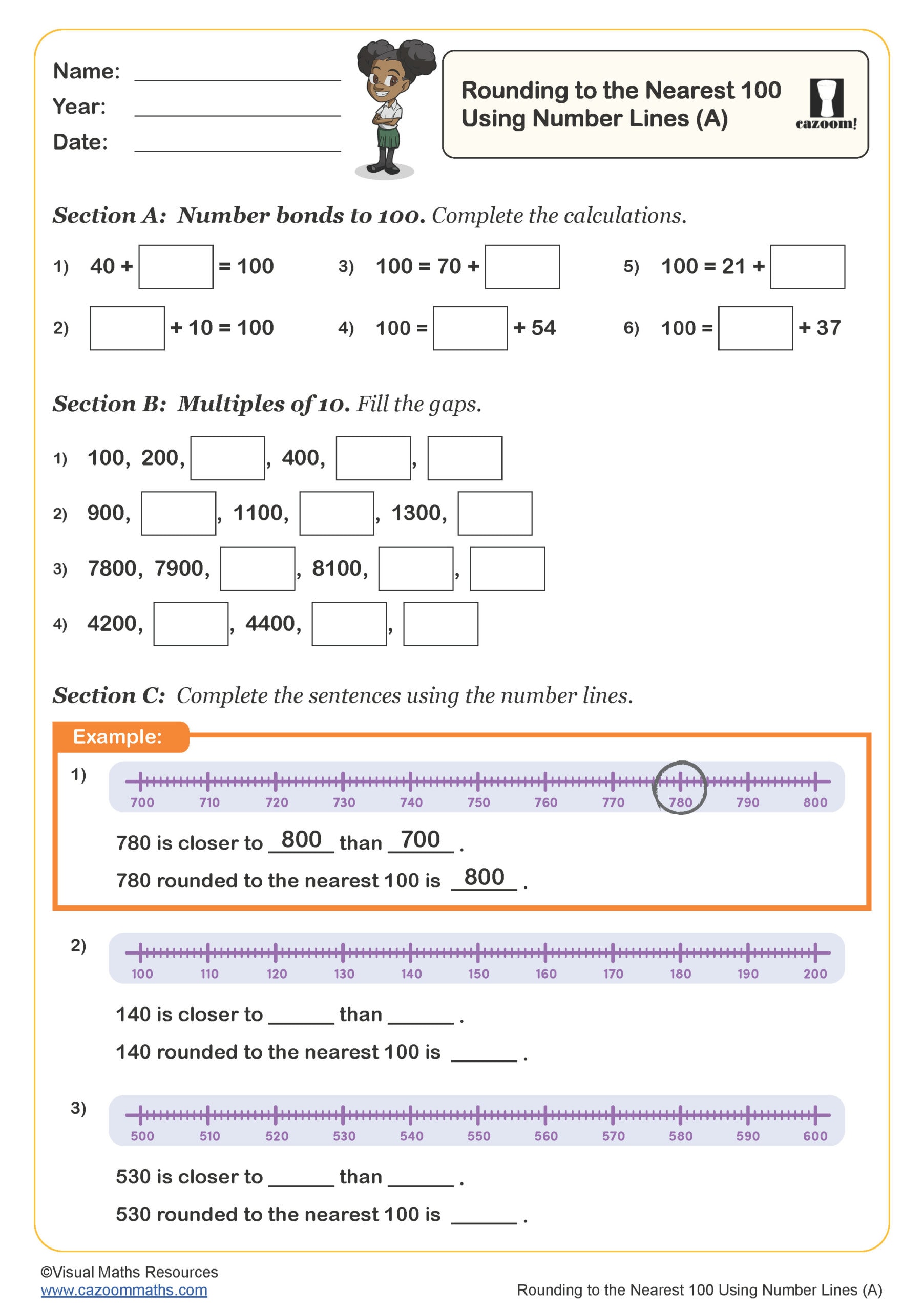
Rounding Numbers to the Nearest 100 Using Number Lines (B)
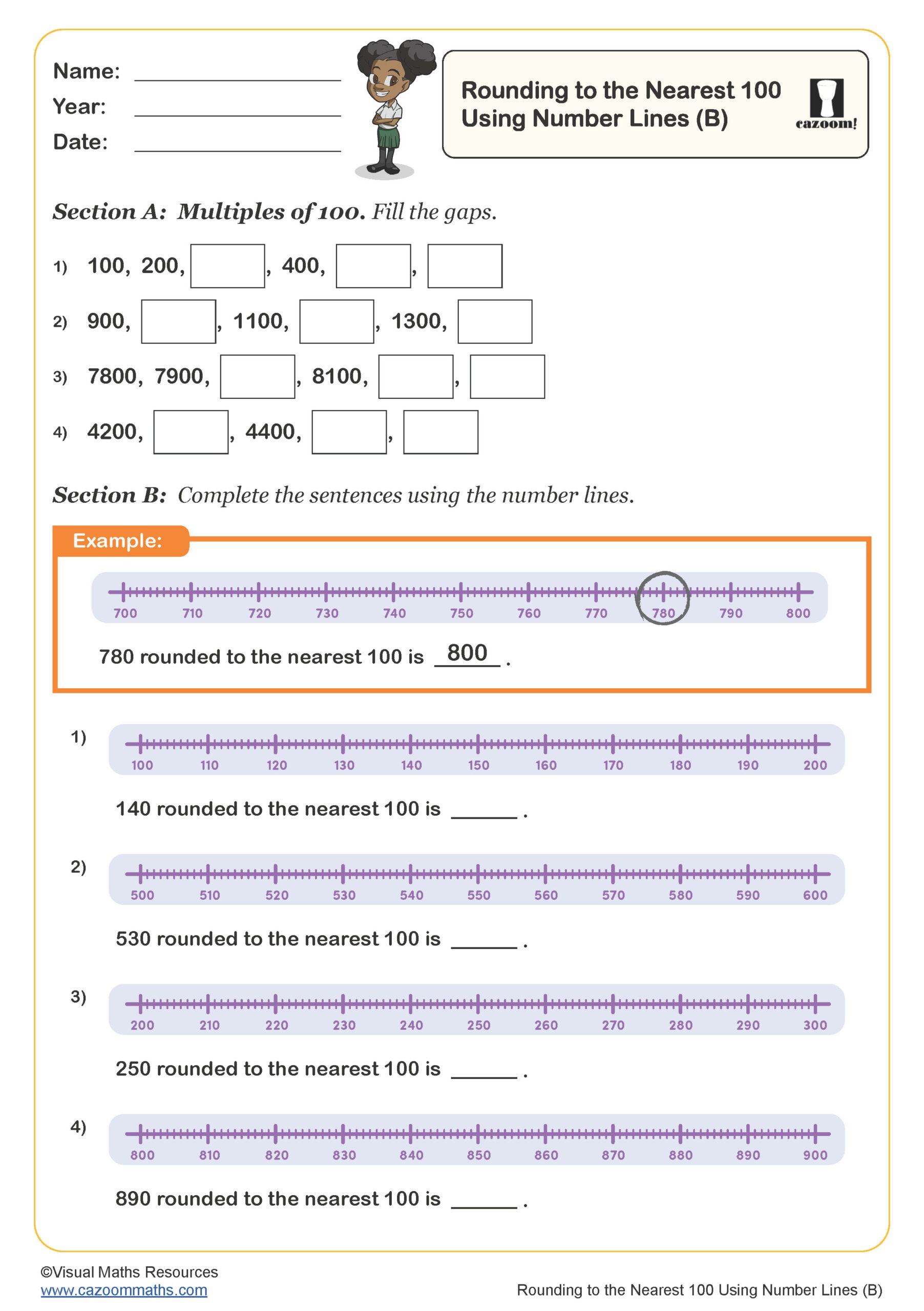
Rounding Numbers to the Nearest 100 Using Number Lines (C)
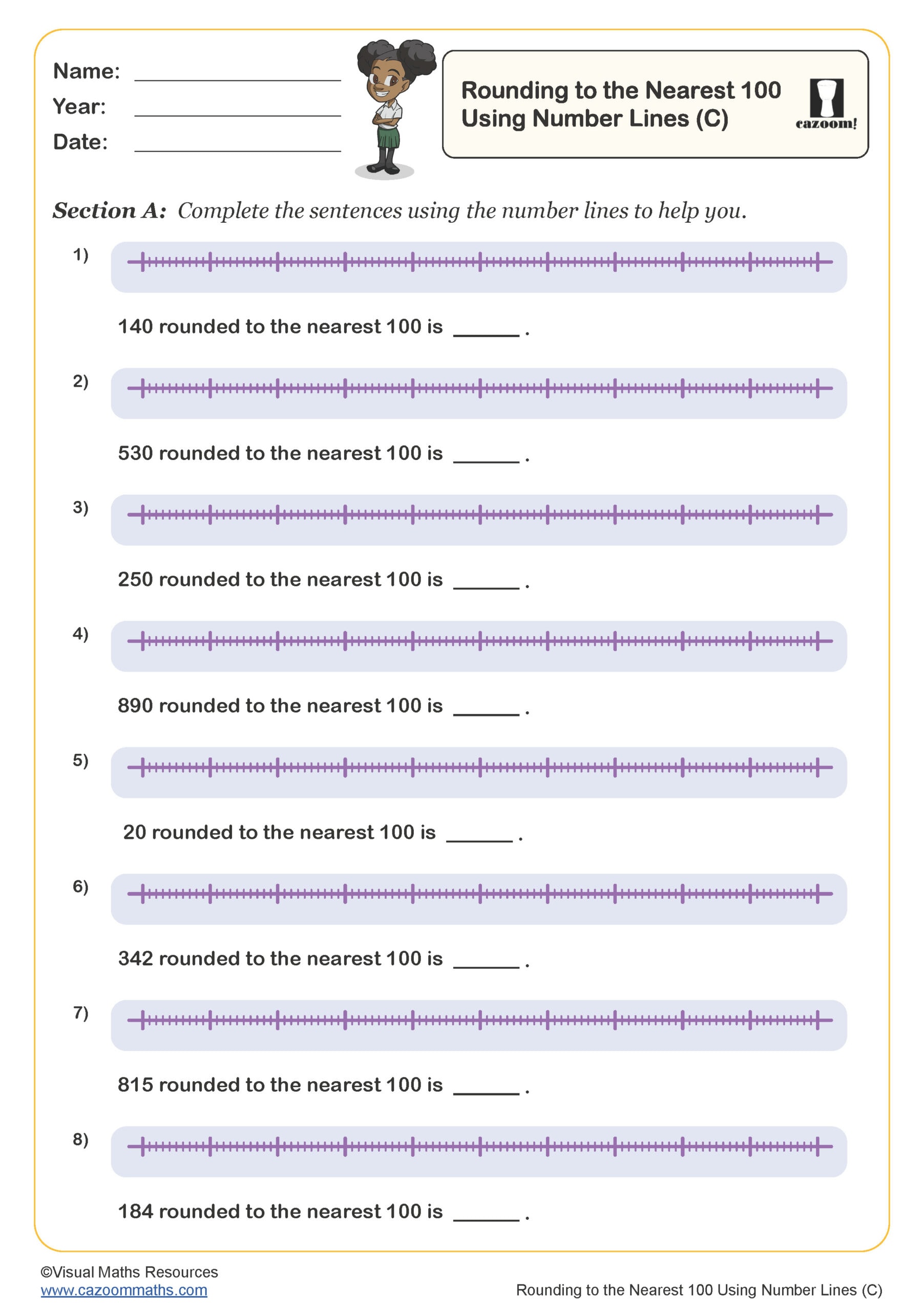
Rounding to the Nearest Multiple of 1,000
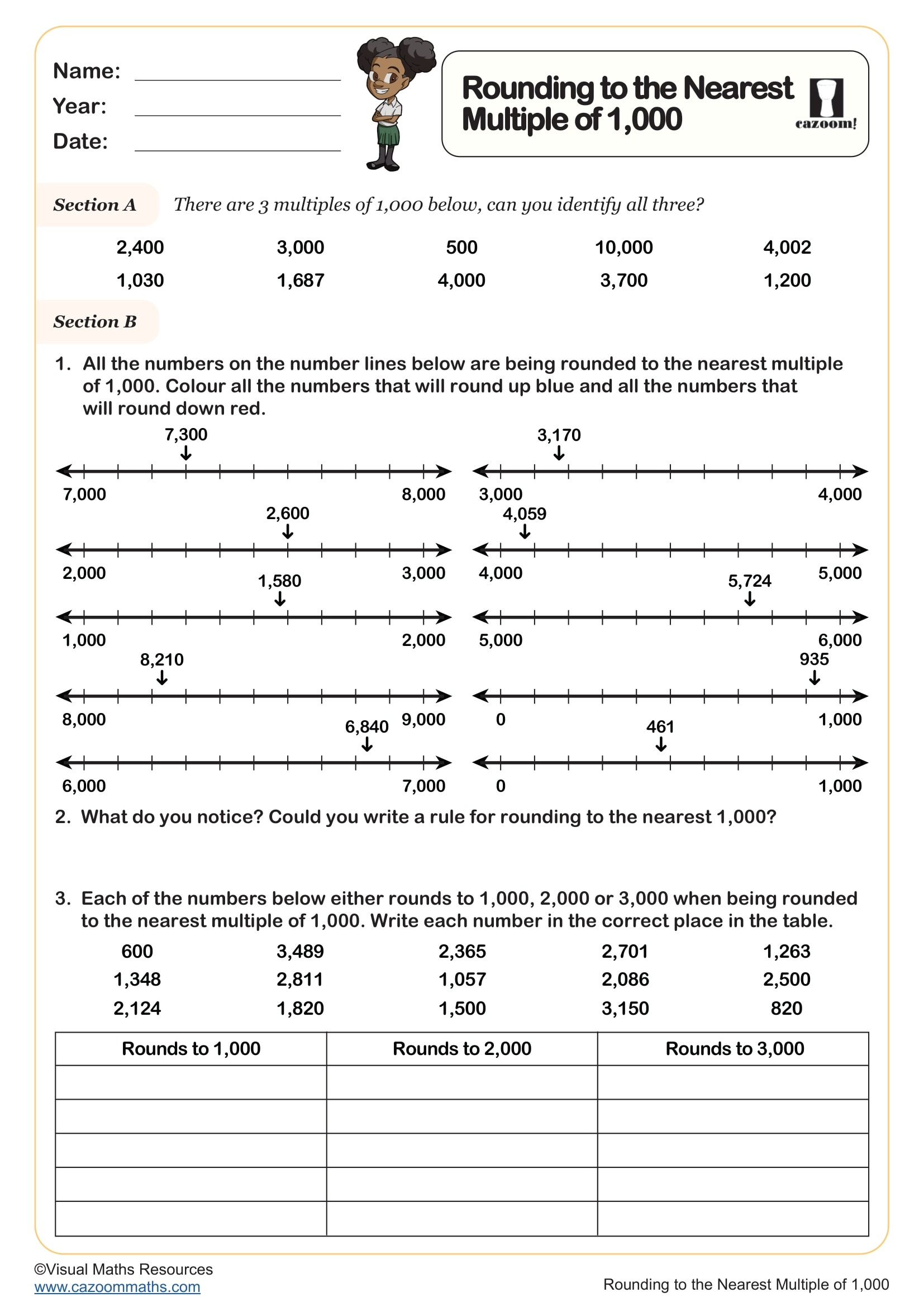
Rounding to Whole Numbers (A)
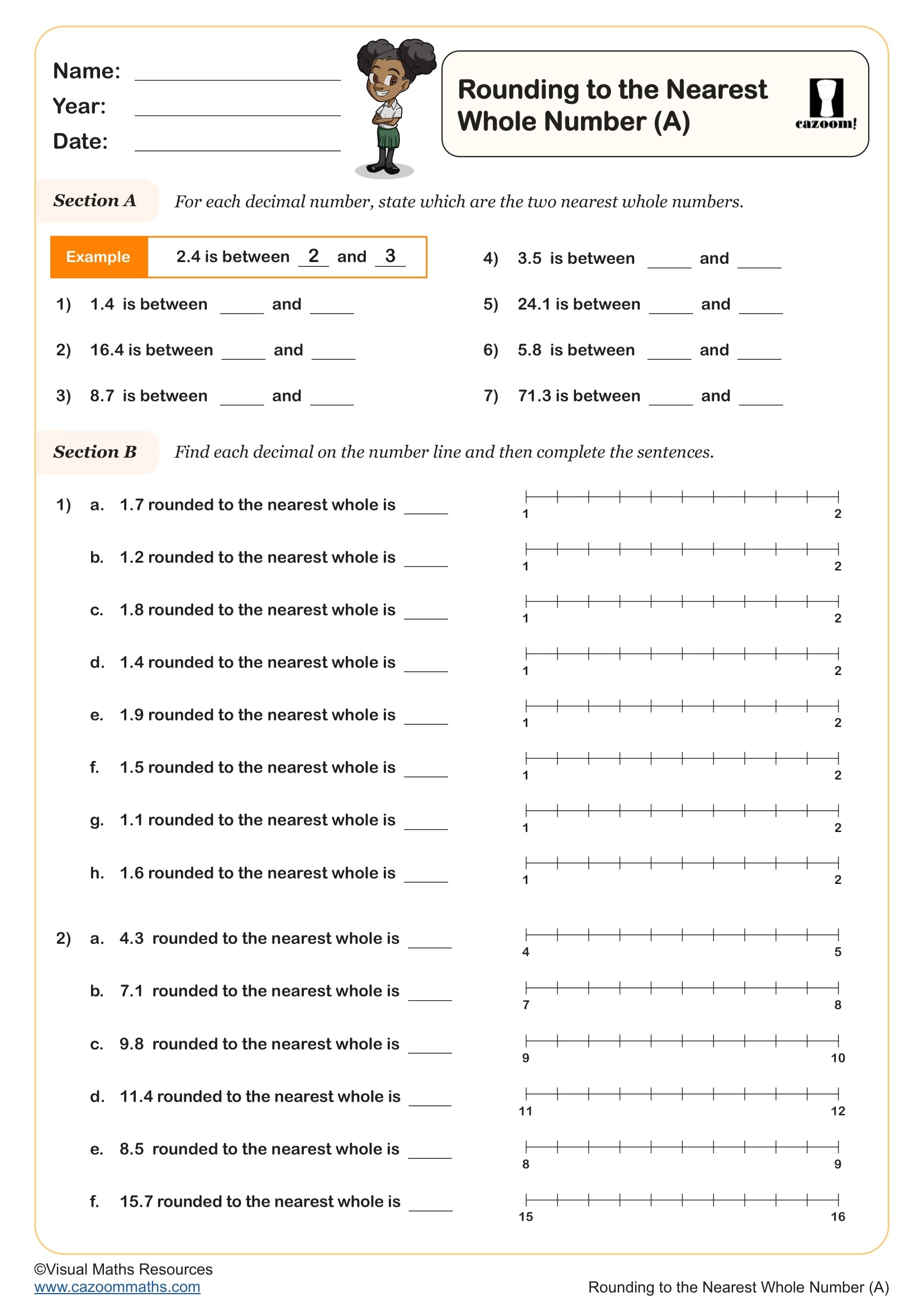
All worksheets are created by the team of experienced teachers at Cazoom Maths.
How Do Printable Year 4 Number Worksheets Improve Student Progress?
Here's what we've observed: students who receive structured practice with Year 4 worksheets in maths show measurably better performance in end-of-year assessments. The transition from Year 3 expectations represents a significant mathematical leap, and consistent worksheet practice bridges this gap effectively. These KS2 worksheets, created in ready-to-use, printable PDF formats, provide the repetition needed to make place value concepts automatic rather than effortful.
Specific learning benefits include:
• Develops fluency with four-digit numbers and decimal introductions
• Builds mental calculation strategies, reducing written method dependency
• Strengthens problem-solving confidence through varied question formats
• Prepares students for SATs with assessment-style practice questions
• Creates homework routines that effectively reinforce classroom learning
• Provides intervention support for students needing additional practice
What Number Skills Do Year 4 Maths Worksheets Cover?
Finding quality math sheets for year 4 that properly scaffold learning progression can be frustrating for busy teachers. Our worksheets Maths Year 4 collection, systematically covers every essential skill from the national curriculum. Each year 4 maths worksheet includes detailed worked solutions showing the complete thinking process, helping students understand methodology rather than just memorising answers. We've structured these printable Year 4 worksheets to progress from concrete understanding through to abstract application.
The core skills covered include:
• Place value to 10,000 - Understanding how digits work together in four-digit numbers
• Ordering and comparing numbers - Using number lines and practical contexts effectively
• Rounding to nearest 10, 100, and 1,000 - Finding the "closest neighbour" concept
• Mental calculation strategies - Breaking numbers apart and rebuilding confidence
• Negative numbers - Starting with temperature and lift contexts before abstract work
• Roman numerals - Historical connections that reinforce number system understanding
Why Do Teachers Choose Our Year 4 Maths Worksheet Collection?
Teaching place value effectively requires resources that actually work in real classrooms. We've found that many available worksheets either oversimplify concepts or jump too quickly to abstract thinking. Our year 4 number worksheets strike the perfect balance - challenging enough to promote growth while remaining accessible to all learners. The detailed answer sheets make marking efficient and allow teaching assistants to provide effective support during independent work sessions.
Students consistently tell us they appreciate seeing the working-out process in our solutions. This transparency helps them understand mathematical thinking rather than just copying procedures. Perfect for differentiation, homework setting, cover lessons, or intervention groups when you need reliable, curriculum-aligned activities.
Where Do Students Apply These Number Skills in Real Life?
Number skills appear everywhere in daily life! We've discovered that highlighting these connections makes mathematical learning significantly more meaningful for Year 4 learners. These worksheets prepare students for practical situations they encounter regularly.
Real-world applications include:
• Shopping and money management - Calculating change, comparing prices, budgeting pocket money up to £100
• Sports and competition analysis - Understanding league tables, calculating score differences, interpreting statistics
• Time and schedule planning - Reading 24-hour clocks, calculating journey durations, managing daily routines
• Cooking and recipe work - Measuring ingredients accurately, scaling recipes, understanding fraction quantities
• Science investigations - Recording precise measurements, analysing experimental data, understanding scale
• Geography projects - Working with population data, comparing distances, interpreting charts and graphs